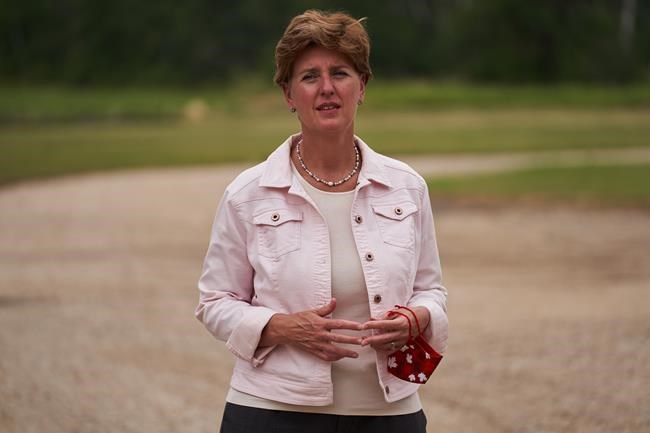Getting the grain moving is job one
Read this article for free:
or
Already have an account? Log in here »
To continue reading, please subscribe:
Monthly Digital Subscription
$0 for the first 4 weeks*
- Enjoy unlimited reading on winnipegfreepress.com
- Read the E-Edition, our digital replica newspaper
- Access News Break, our award-winning app
- Play interactive puzzles
*No charge for 4 weeks then price increases to the regular rate of $19.00 plus GST every four weeks. Offer available to new and qualified returning subscribers only. Cancel any time.
Monthly Digital Subscription
$4.75/week*
- Enjoy unlimited reading on winnipegfreepress.com
- Read the E-Edition, our digital replica newspaper
- Access News Break, our award-winning app
- Play interactive puzzles
*Billed as $19 plus GST every four weeks. Cancel any time.
To continue reading, please subscribe:
Add Free Press access to your Brandon Sun subscription for only an additional
$1 for the first 4 weeks*
*Your next subscription payment will increase by $1.00 and you will be charged $16.99 plus GST for four weeks. After four weeks, your payment will increase to $23.99 plus GST every four weeks.
Read unlimited articles for free today:
or
Already have an account? Log in here »
Hey there, time traveller!
This article was published 27/07/2022 (1235 days ago), so information in it may no longer be current.
Agriculture Minister Marie-Claude Bibeau has promised her government and Canada’s grain producers are “all hands on deck” to get the maximum amount of Canadian grain to developing countries. She said this country’s farmers “want to step up” to help relieve the world food shortage stemming from the Russian invasion of Ukraine.
Growing grain is only part of the challenge. It must be transported to markets and, in Canada, grain must move by rail. One hopes Ms. Bibeau’s optimistic promise is heeded by the two major railways, CN and CP, that are essential links to transport grain from bins to port ships.
Since Ms. Bibeau made her pledge last month, there has been an encouraging international development. It was announced July 22 that a four-month deal has been signed between Russia and Ukraine, freeing the export of some 22 million tonnes of grain and other agricultural products that have been stuck in Black Sea ports as a result of the Russian invasion.
The combination of a blockade of Ukrainian ports and western sanctions against Moscow has raised fears of famine in countries such as Somalia, Kenya and Ethiopia that rely on grain from Ukraine and Russia, which historically produce about one-third of the wheat traded in global markets, and about one-quarter of the world’s barley.

Canada, which produces about 12 per cent of the world’s wheat and exports to about 70 countries, can help ease fears of a global food shortage, provided the grain can get to the countries that need it.
The historical relationship between farmers and the railways on which they depend has been testy at times. Producers have accused the railways of providing poor service by making available far fewer container rail cars than needed. Farmers and grain companies want to export grain in the fall and winter, when prices are highest, and grain left in bins during this peak time for exports means less revenue.
A campaign called Canada’s Ready was launched last week by a coalition of producers’ organizations — Pulse Canada, Cereals Canada, the Canola Council and Western Grain Elevator Association. The aim is to raise awareness of the challenges of the Canadian grain logistics system, taking particular aim at ways in which railways could address problems the producers say are systemic.
The campaign seeks better transparency regarding how the railways plan to to move the grain, based on information from the grain sector. One official points out that CN’s plan last year for the week of Feb. 13 to 20 was to provide 1,240 rail cars, but only 550 cars were actually available.
As UN Secretary General António Guterres told the security council, 49 million people in 43 countries are in emergency levels of hunger.
The producers also seek information on labour agreements within CN and CP. At least 12 different contracts with railway employees have expired, or will soon expire, and CN cut 1,800 employees in 2021 — factors leading to fears of service disruptions.
Both CN and CP say later this month they will release their annual plans for how they will meet the needs of grain producers. The companies should acknowledge the producers’ requests for more transparency and more reliable transportation. If they don’t, the complaints of poor service should be brought to the Canadian Transportation Agency, which regulates Canada’s railways.
More than ever, a world facing food shortages depends on grain producers, including Canada. And, in turn, Canadian producers depend on the railways.
As UN Secretary General António Guterres told the security council, 49 million people in 43 countries are in emergency levels of hunger, “just one step away from famine.”
“There is enough food for everyone in the world,” he said. “The issue is distribution, and it is deeply linked to the war in Ukraine.”






